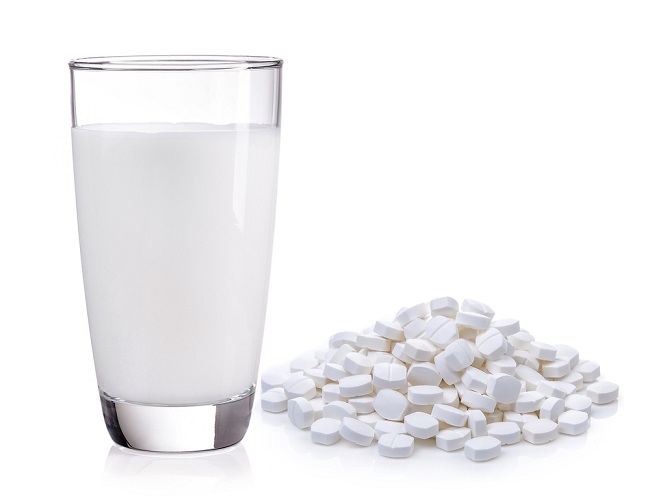Procainamide is a drug that is useful for treatingovercome irregular heartbeat (arrhythmia)), especially in ventricular arrhythmias (heart chambers beat too fast). Procainamide available in tablet form and intravenous injection.
Procainamide functions to regulate irregular heartbeats. This drug is used with close and regular monitoring by a doctor. If not used properly, this drug can actually cause an irregular heartbeat and cause other fatal side effects.

What is Procainamide?
| group | Antiarrhythmic drugs |
| Category | Prescription drugs |
| Benefit | Treating irregular heartbeats (arrhythmias). |
| Consumed by | Adults, children and seniors. |
| Procainamide for pregnant and lactating women | Category C: Animal studies have shown adverse effects on the fetus, but there are no controlled studies in pregnant women. Drugs should only be used if the expected benefit outweighs the risk to the fetus. Procainamide can be absorbed into breast milk. Consult your doctor if you want to use this medicine during breastfeeding. |
| Drug form | Oral and injection |
Warning Before Use Procainamide:
- Do not use or take procainamide if you have an allergy to this drug.
- Do not use or take procainamide if you have lupus, heart problems, such as AV block and QT prolongation syndrome.
- Be careful using or taking procainamine in the elderly.
- Tell your doctor if you have a history of stroke, have heart failure, hypotension, myasthenia gravis, weakened immune system, kidney disorders, or impaired
- Tell your doctor if you are taking procainamide before having laboratory tests, because procainamide can affect the results of the test.
- Tell your doctor if you are pregnant, breastfeeding, or planning a pregnancy.
- In case of an allergic reaction to the drug or an overdose, see a doctor immediately.
Dosage and Use of Procainamide
The following is a breakdown of the procainamide dosage recommended by doctors:
Oral Procainamide
- Mature: 50 mg/kg per day, divided doses every 3-6 hours.
- Children: 15-50 mg/kgBW per day, divided doses into 4 consumption schedules.
- seniors: The dose will be adjusted by the doctor according to the patient's condition.
Injectable Procainamide
For procainamide injectable and infusion preparations, the dose will be adjusted by the doctor according to the condition and age of the patient. This type of procainamide should only be given by a doctor or by medical personnel under the supervision of a doctor.
How to Use Procainamide Correctly
Injectable procainamide will be given by a doctor or medical officer at a hospital. The doctor will monitor the patient's condition during treatment. Generally, doctors will replace injectable procainamide with procainamie tablets after the patient's condition improves.
To take procainamide tablets, make sure you follow your doctor's instructions. Oral procainamide is recommended to be taken on an empty stomach, which is about 1 hour before eating or 2 hours after eating.
Do not change your dose or stop procainamide without your doctor's recommendation.
Swallow the procainamide tablet whole, do not chew or crush it first. Chewing or crushing procainamide before swallowing can increase the risk of side effects.
Take procainamide at the same time every day, for effective results. If you accidentally miss the schedule of taking this medicine, take it as soon as you remember, if the next schedule is not too close. If it is close, ignore it and do not double the dose.
Store procainamide in a cool, dry place and away from sunlight. Keep out of reach of children.
Interactions of Procainamide with Other Drugs
The following are some of the effects of interactions that may occur when taking procainamide with certain medicines:
- Enhanced effect of antihypertensive, antiarrhythmic, antimuscarinic and neuromuscular blocking drugs.
- Increased plasma concentrations and toxicity of procainamide, when used concomitantly with trimethoprim.
- Increased risk of arrhythmias which can be fatal when used with terfenadine and antipsychotic drugs.
- Decreased effectiveness of procainamide, if you consume alcohol while taking this drug.
Procainamide Side Effects and Dangers
Side effects that can occur with the use of procainamide are:
- Stomach pain.
- Nausea and vomiting.
- Dizzy.
- Diarrhea.
- Depression.
- Hard to breathe.
- hallucination.
- The emergence of lupus symptoms, such as a rash on the cheeks, muscle pain, and swelling of the arms and legs.
Taking or using procainamide in excess of the recommended dose can cause an overdose. Symptoms of a procainamide overdose are:
- Decreased amount of urine
- Feeling very sleepy
- Feeling very dizzy or fainting
- Irregular and fast heartbeat
Immediately see a doctor if you experience the symptoms mentioned above or have an allergic reaction to drugs, such as an itchy skin rash, swelling of the eyes and lips, and difficulty breathing.









